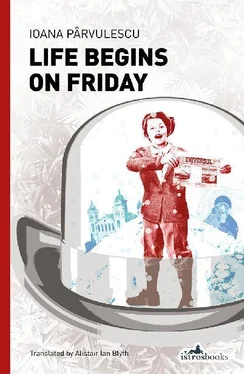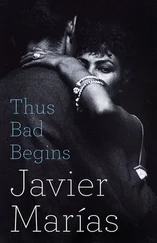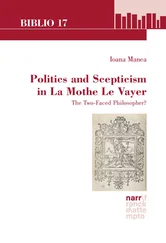Old General Algiu arrived at nine o’clock, on the box of his carriage next to his inseparable adjutant, but he was oppressed by the great empty space on the other side of him. The General knew he was too old, in soul rather than body, to fill that empty space with another woman. Today was the last day of a year of mourning, which meant that today was the day when he had lost his beloved wife. New Year’s Eve would always be a black day for him. But it was better that he should spend it in company.
Costache arrived an hour later, with Mlle Olympia Mărculescu, Gilda. The two arrived at the same time as the carriage driven by Alexandru, from which alighted Miss Margulis. The surprise was mutual: Costache was amazed to see Iulia alone in Alexandru’s carriage, and Iulia to see Mr Costache with a companion, when she thought him to be single. Their eyes met. The policeman apologized to his hosts for being late: he had come straight from the Opera, where the female lead had, as ever, earned a standing ovation. After reminiscing about New Year’s Eve parties from the recent past, Mr Hristea Livezeanu showed them a French caricature from Le Figaro , which depicted a beautifully arranged festive meal and beneath it, in small letters, the words of the host: ‘Please, no politics and no Dreyfus Affair!’ And at the bottom of the page, there was a drawing of the same table, in disarray, with drunken guests and the caption, in equally small script: ‘Ils en ont parlé’ (They talked about it).
Following that delicate apropos, the company was invited to sit at the dinner table. There were fifteen people seated at the large dining room table, which was of solid wood and could be extended or shortened: a convenient number, although sixteen would have been better for symmetry’s sake. Five in number, the children sat at a smaller table. Nicu kept going back and forth between the two tables, since he constantly had something to tell Dan, until Agatha saw him and scolded him.
‘If the honour falls upon me to open the first window to the future,’ said the host, ‘then this is what I see: within a year or two, before the turn of the century, the ‘iron lady’ will be deposed. At least so I hope!’
Before twelve o’clock on the last day of the year ’97 or the hour 0 of the first day of the year ’98, Marioara proposed a game: let each make a prediction about the future, instead of the usual pie containing fortunes on slips of paper, of which everybody was sick. (Marioara did not confess that her pie had burned.) Better to have predictions. The predictions could go as far as one liked. The idea of having a small pause before the roast garnered unanimous approval. The fifteen adults were joined by Nicu, the sixteenth, since he felt he belonged to the big table rather than the children’s table. Since people took to him, he was accepted as a novelty. And so numbers were inscribed on slips paper, from 1 to 16, and they were dropped inside Peppin Mirto’s hats, which would be drawn to establish the order in which each would speak. The hat and chance determined that Mr Hristea Livezeanu was first, and Dan Crețu last. Of the others, many declined to take part, either from bashfulness or other reasons hard to divine.
Procopiu, who was second, had already prepared a vague answer about the next issue of Universul , but when he heard that Hristea Livezeanu wanted the ‘iron lady,’ in other words La Tour Eiffel to be demolished, he felt it his duty as a journalist to intervene. Having risen to his feet, following the example of the first speaker, although his shoes forced him to sit for as long as possible, he asked permission to commit the impoliteness of disagreeing with his host: ‘The Eiffel Tower will endure for centuries. It will be visited by many people. Paris will be synonymous with the Eiffel Tower, and the Eiffel Tower with Paris.’
‘Encouraged by Mrs Livezeanu’s smile, since she always ascribed to the view contrary to that of her consort, he went on: ‘It will last for at least as long as the Statue of Liberty in New York, which… on whose metal structure Eiffel also worked. M Gustave Eiffel is a genius of steelwork, as everybody knows. It is true that the Panama Canal affair, which the newspapers, even in this country, have exaggerated so much, has tarnished his fame as an engineer somewhat. But it has been a long time since Léon Bloy, a writer who has written no great books, called the tower a ‘tragic lamp,’ while a better writer, albeit one rather too eccentric for my taste, M Huysmans, described it, may the ladies forgive me, as a suppository full of holes!’
Procopiu’s cheeks flushed and his fellow diners sensed that the journalist’s Achilles heel had been struck. His colleague Pavel Mirto knew why. The editor-in-chief’s childhood dream had been to become an engineer, and Gustave Eiffel and Anghel Saligny were his great role models, in a world in which models were hard to choose, given they were so numerous. He had been to the Paris Exhibition in ’89 and he hoped one day to shake the hand of Eiffel in the flesh. He knew Saligny well; they were of the same generation. Procopiu had attended the ceremony to open the Cernavodă Bridge across the Danube in ’96, on 14 September, and he remembered with a thrill the thousands of people who had arrived on five special trains, including the most famous journalists. He even remembered the special train on which the entire royal court, diplomatic corps and ministers had arrived. A week later, Neculai Procopiu had accepted an invitation to attend the banquet held by the Ministry of Public Works in honour of Saligny and the other engineers who had worked on the bridge.
Alexandru politely raised his glass to Procopiu and congratulated him. He had courage and passion of which he would not have believed him capable; he had always seemed to him somewhat banal. And in order to pass over the rather embarrassing mention of the suppository, a word that was osée on a festive occasion and in the presence of the ladies, although this was the risk one ran when one invited journalists, he said: ‘Number 3? Who has number 3?’
Full of the importance of the occasion, Nicu declared himself. He stood next to Iulia’s chair. He had taken off his coat and inserted his thumbs behind his braces, as he had seen old man Cercel do: his model. He spoke quickly, as he did at school whenever he had to answer a question, with his eyes fixed on Dan: ‘Through the window of the future is Mr Dan and farther away is Jacques, who is going for a walk, without his crutch… with you,’ he added, moved by the silence that had fallen around him.
‘Bravo!’ Now it is my turn,’ said Alexandru, since the company was even more embarrassed than they had been at the previous speaker, although Jacques was smiling from his seat. He understood that Nicu had sacrificed his own wishes for his sake. Nicu looked curiously at Alexandru, to see whether he would reveal the secret he knew.
‘I do not see anything, but I wish to write for Universul . At least a society column, since you do not have one,’ he said to the three newspapermen, who seemed to approve the idea, at least out of politeness.’
‘A welcome idea!’ said Madam Livezeanu. ‘I shall claim the right not to make any prediction. But I would like to climb to the top of the Eiffel Tower before it is demolished, as my husband predicts. Naturally, using the ascenseur . Surely we shall find the five francs in our pockets. À bon entendeur, salut ,’ she added, for her husband’s ears.
It was Pavel’s turn. He spoke in his usual muted voice, so that only those sitting next to him were able to hear.
‘Some of you know that I am writing a novel. I hope that the God of our future is not a novelist, to kill off his protagonists unexpectedly and invent bad things (although He, the Creator, is good, is He not?) merely so that his book will turn out good and so that the devil will not say that He, the Lord, has not created a world without horns and a tail. Or a different version: let us hope that we are not living in the world of Old Nick, who, a fearless plagiarist, has compiled the world of God, but added some original evil on his own account. And from time to time God manages to sabotage him with something good. Let us hope that whoever is the One has written this world —’ here Pavel pointed his finger at the ceiling and then at the floor ‘— loves happy endings, and that all is well that ends well.’
Читать дальше












